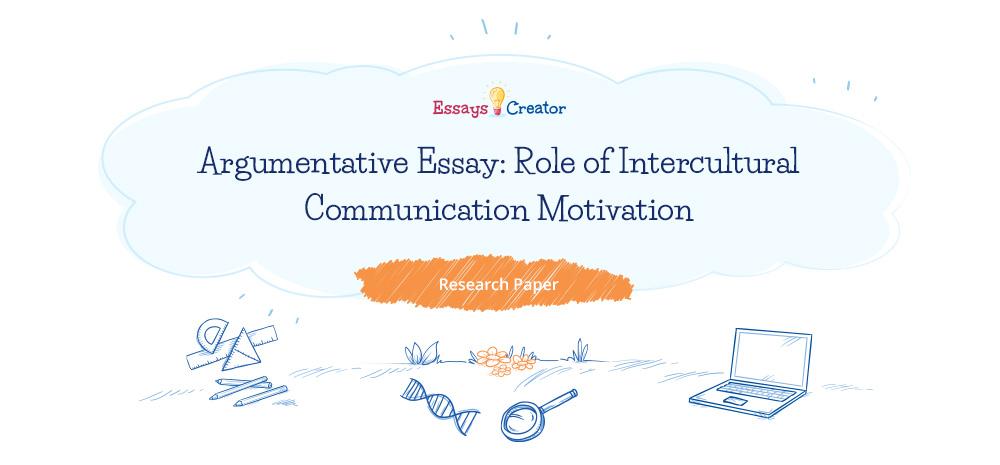
People spend a lot of time of their lives working for various firms. Those companies, in which they operate, are organizations. Many activities individuals dedicate their leisure time to are also associated with different businesses. It is easier to analyze organizations in relative isolation from the issues or culture in the past. Labor was less diverse racially, ethnically, and culturally during those days. The expectations of the organizations’ members were more or less similar with such cultural diversity. The companies were increasingly removed from the problems of culture in a bit different way. Many of them had an exclusively or predominately intra character in the past.
There is an unprecedented number of multinational corporations currently. These are industrial organizations, which have subsidiary offices and branches as well as structural units acting in more than one country. Such companies have to increasingly deal with people and varied cultural traditions. The transition from one unit to another within the same enterprise often means moving one country to another at present days. Internationalization of business entails a significant number of cross-cultural issues happening. Even the companies that operate in their domestic market and do not have a multinational structure face a challenge of internationalization and its inherent problems of intercultural interaction. Thus, the research paper is aimed to discuss how intercultural communication interacts with the organizational climate and culture, and what its features are. Additionally, the results of these findings will allow advocating for or against such cooperation.
Order your Research Paper help today!
Organizational Culture and Climate
There are quite a lot of definitions of organizational culture in modern literature. At the same time, there is no universal term available. There is a variety of functional descriptions of cultural areas that are formulated per the specific objectives of the study. However, there is no holistic or essential well-known definition of organizational culture. Thus, it is considered to be a set of attitudes, values, and perceptions that guide the behavior of members of the organization supported by all its participants. It is also a philosophy, ideology, values, and norms, which bind the company into a single unit shared by its workers. Moreover, organizational culture is a basic set of ideas, beliefs, and internal rules that are constantly directing the behavior in the workplace. This culture is focused on the internal environment and manifested primarily in the organizational behavior of employees.
Organizational culture has its properties, such as commonality, objectivity, hierarchy, priority, and consistency. Commonality means that not only all knowledge, values, attitudes, or customs but many other things are used by a group to meet the deep needs of its members. Objectivity is related to the fact that the main elements of the organizational culture do not require any proof as they are granted. Additionally, any culture involves ranking values. Thus, absolute values are of paramount importance. Their prioritization is unconditional. Consistency is explained by the complexity of the system that combines individual elements into a single unit (Schneider, Ehrhart, & Macey, 2013).
The value of organizational culture is determined by several factors during the process of development. First, it gives the staff an organizational identity and defines an intra picture of the company as an important source of stability and continuity. It creates a sense of security among employees of the organization and their position in it, as well as contributes to the meaning of social security. Second, the basic knowledge of organizational culture helps new employees to correctly interpret the events taking place within the firm while defining all the most essential ones. Third, the organizational culture encourages self-awareness and high responsibility of each employee performing tasks entrusted to each one.
Organizational culture affects the achievement of the company’s objectives. According to the survey conducted by the Managers Association, its effect is manifested in the fact that it: 1) contributes to higher levels of the company; 2) improves the efficiency of business processes; 3) contributes to a better motivation of its staff; 4) is one of the key factors in the development strategy of any business; and 5) provides a positive image of the firm’s staff, shareholders, and the external auditor.
Organizational culture influences the strengthening of mutual integration of employees, improving their understanding and even forcing them to comply with the rules, which have never been recorded. It also allows predicting organizational behavior and not trusting all means of regulatory requirements. In addition, external control is successfully replaced by self-control in this case (Hartnell, Ou, & Kinicki, 2011).
The organizational climate contains less stable characteristics and criteria compared to organizational culture. Its features determining it mainly are derived from employees and depend on some subjective and objective factors. They include such as mood, character, health status, satisfaction to need, understanding, and attitude to work. The climate is built in its way in each of the departments. There is no such section of the firm having an identical organizational climate. External factors influencing the conditions are the changes in the enterprise.
Organizational climate is associated with organizational culture. The first one is the state of the environment within the organization, which is reflected in the emotions, moods, and experiences of its members. It has an impact on their working behavior. Organizational climate is determined by the nature of people and organizational links, as well as the supervisor-employee relations. The contradictions arising both vertically and horizontally can be eliminated under the influence of organizational culture. Thus, the formation of organizational climate is influenced by external and internal factors with underlying determinants. First, these are some management values, managers’ merits, and the features of their perception by employees. Latter ones are important for the climate in any firm. Second, there are some economic conditions. Third, there is an organizational structure. It should be understood as an administrative setup. This structure is a set of operating units, interconnected in a process of study, development, adoption, and implementation of administrative decisions. Its change often leads to a significant climate shift in the company. Fourth, there are some characteristics of the organization’s members. Fifth, there is the size of the enterprise that impacts. It has been found out that large organizations are characterized by a big rigidity and bureaucracy in comparison with smaller ones. A high level of cohesion is easier achieved in small companies compared to large ones. Sixth, the job is important, its order, reporting, as well as its relationships with other processes and units. Finally, there is a management style. It is characterized as a set of the most characteristic and stable methods for solving typical problems and the development of management solutions allowing the understanding of officials subordinated to senior management. An ideal and most favorable climate has five features. They are encouragement, trust, sociability, participation in any decision-making process, as well as setting the aims of the highest productivity (Zaremba, 2010).
Intercultural Communication
Like any other form of communication, intercultural communication has its own goals at all levels. Their implementation leads to the existence or lack of communication. The concept of intercultural competence plays an important role in this case. This principle is usually associated with communicative competence being the level of generated interpersonal experience, particularly learning to deal with others. This individual background is required to operate successfully in a society in terms of an individual’s abilities and social status.
Intercultural competence is considered in two ways. First, it is an ability to form someone else’s cultural identity, which implies the knowledge of language, values, norms, and standards of behavior of another communicative community. With this approach, the main purpose of any communication process is the absorption of the maximum information amount and the adequate knowledge of another culture. The second aspect is the achievement of success related to representatives of the cultural community, even when there is insufficient knowledge of basic elements concerning the culture of partners. This type of intercultural competence is often associated with the practice of communication (Samovar, Porter, McDaniel, & Roy, 2015).
The process of mastering intercultural competence is intended to manage the flows of interaction, interpret them adequately, as well as acquire new knowledge of the cultural context of the particular cross-cultural interaction. It means to learn different cultures in communication processes.
Cultures inevitably display an influence on each other with the help of interaction. Thus, they complement each other and enrich, but reveal their own identity and specificity at the same time. It is a mutual adaptation through borrowing the mutual possession on both sides. This process brings new, often unexpected, and exotic elements to life that people have to consciously or spontaneously adapt to. As a result of such a complicated flow, a person reaches certain compatibility with a new cultural environment (Diao & Park, 2012).
How it works
Step 1
Visit our website and go to the order formStep 2
Fill in specific essay details in your order description sectionStep 3
Pay for your custom essay and get your order verifiedStep 4
Process of writing your academic assignmentStep 5
Editing and anti-plagiarism checkStep 6
On-time delivery of an already written essayThe Validity of Research Findings
In regards to the discussion of aspects of the organizational culture and climate in any company with multinational personnel, I advocate for the benefits a person involved in it may gain. Initially, it may seem difficult to communicate with persons who speak different languages and have other traditions. First of all, it can be an understanding issue. Some sentences or words can be interpreted incorrectly. They may affect the results of the goals set. Second, different traditions may result in diverse points towards business strategies leading to contradictions between the management. Finally, the person’s unwillingness to cooperate and insist on a personal point of view may affect the performance of the whole department and lead to a split in a team.
I believe that such minor issues cannot become a reason to argue against such cooperation. More advantages can be given to not only the entire team but the whole business. First, working for a multinational company contributes to the progress of learning new languages. Second, there is a chance for the participation of international conferences and duty journeys to improve professionally. Third, the differences in traditions allow developing new approaches to be favorable for business. People usually get a common sense through constant discussions. This process contributes to the creation of wise thoughts that may be implemented into business and introduce completely new products and services to the market. Finally, working in an international team allows expanding the perception and spiritual growth. It lets every person go to a new level of mentality affecting not only the professional life but daily activities as well.
Conclusion
Intercultural communication is a kind of interpersonal communication in a particular context. When people are aware of cultural differences, interpersonal communication becomes intercultural. As an important component of self-awareness of personality, values, ideas, and beliefs, culture is a part of every communication process. Facing the fact that our culture brings to the communication process people can appreciate the importance of communication for the success of other participants’ cultures in this process. It is important to not only recognize the existence of cultural differences but also understand the following fact. Every member of the company or entire society is manifested in different ways in the communication process.
Based on my personal experience, I must fully agree with the findings discussed in the essay devoted to organizational climate, culture, and intercultural communication. It brings a great experience to every member of the team. Each of them is learning from another participant and being able to evaluate personal strengths and weaknesses, as well as cooperate with others facing weaknesses and turning them into benefits.

















